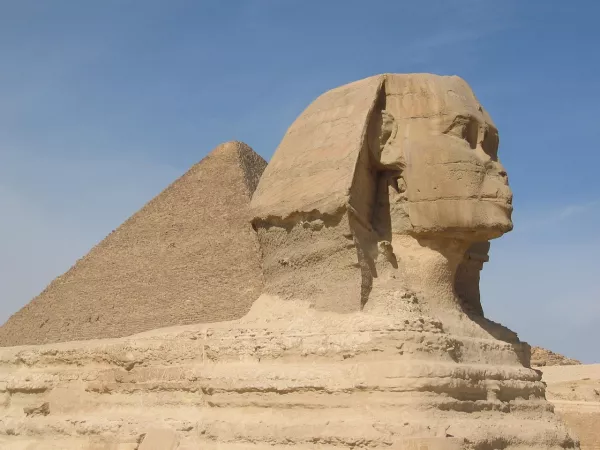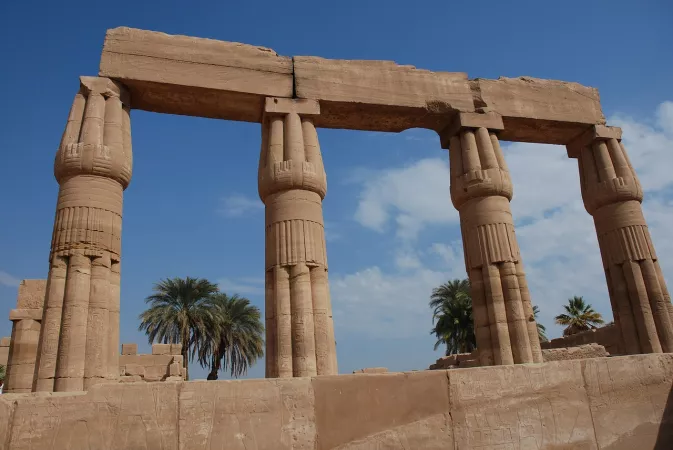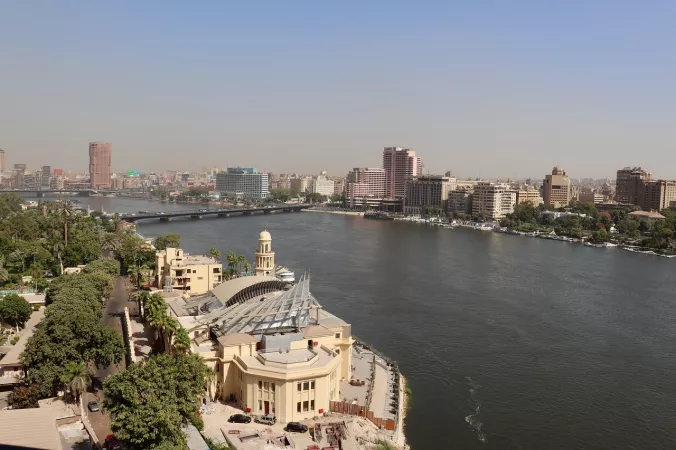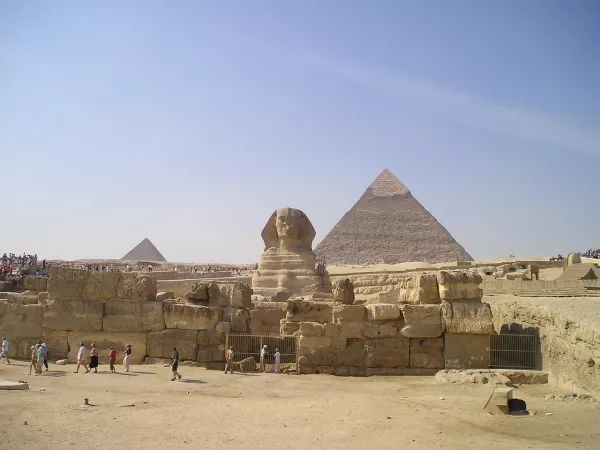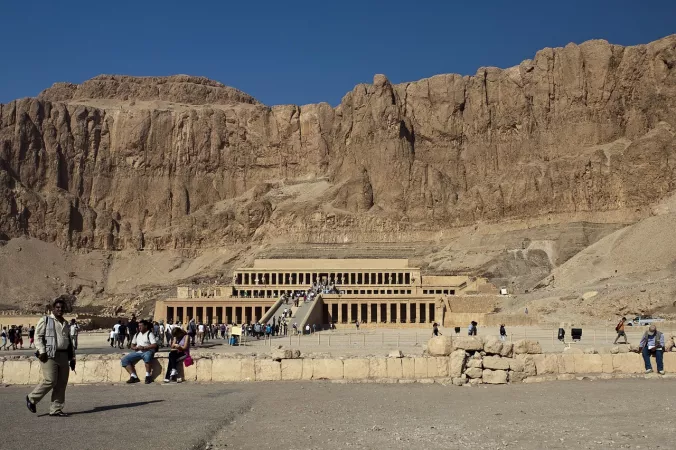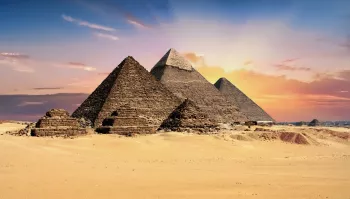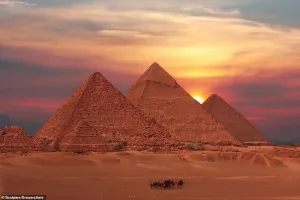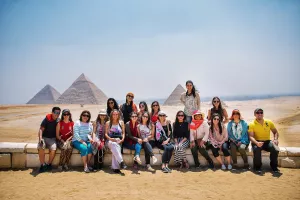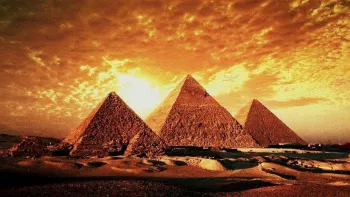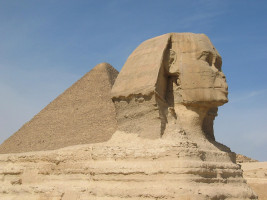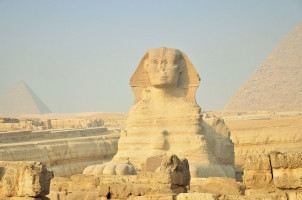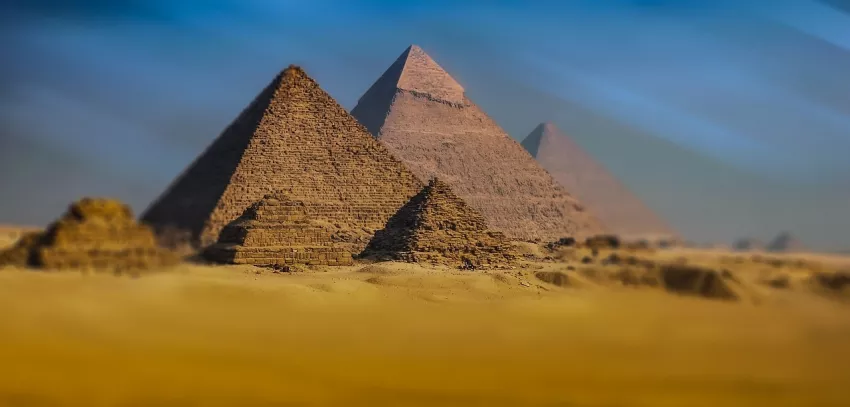
Egypt
Duration
7 to 14 Days
7 to 14 Days
Best time to visit
Feb-Mar, Oct-Nov
Feb-Mar, Oct-Nov
Theme
Heritage, Deserts
Heritage, Deserts
Egypt Travel Guide
Egypt, a country in North Africa, is famous for its ancient civilization, including the iconic pyramids, temples, and tombs of the pharaohs. With a rich history dating back to the time of the pharaohs, Egypt is a land of mystery and wonder. Its geography is dominated by the Nile River, which has sustained life in the region for thousands of years. The country is also known for its vibrant culture, with colorful markets, traditional music, and delicious cuisine.Top Attractions in Egypt
- The Pyramids of Giza
- The Sphinx
- The Valley of the Kings
- Karnak Temple
- The Egyptian Museum
Egypt is Famous for
Ancient wonders like the Pyramids of Giza and the Sphinx.Top Attractions in Egypt
- Exploring the Pyramids of Giza
- Cruising the Nile River
- Snorkeling in the Red Sea
- Visiting Luxor and its ancient temples
- Shopping in the Khan el-Khalili Bazaar
What's Great about Travelling to Egypt?
- Experience ancient history firsthand
- Explore unique archaeological sites
- Enjoy beautiful beaches and resorts
- Sample delicious Egyptian cuisine
What's Not So Great about Travelling Egypt?
- Hot weather, especially in summer
- Crowds at popular tourist sites
- Language barrier in some areas
- Potential for tourist scams
Travel Tips for Egypt
- Obtain a visa before arrival
- Use reputable tour guides for safety
- Stay hydrated and wear sunscreen
- Respect local customs and traditions
Important Egypt trip information
- Ideal Duration: 7-10 days
- Best Time to Visit: October to April
- Nearby Airports and Railway Stations: Cairo International Airport, Luxor International Airport, Cairo Railway Station
Top 5 Places to visit in Egypt
Per Person
1,99,990
*EXCLUDING APPLICABLE TAXES 4.8 Ratings
( 38 Reviews )
( 38 Reviews )
Per Person
1,84,563
*EXCLUDING APPLICABLE TAXES Per Person
4,222
*EXCLUDING APPLICABLE TAXES Per Person
1,45,362
*EXCLUDING APPLICABLE TAXES Per Person
1,60,367
*EXCLUDING APPLICABLE TAXES 4.9 Ratings
( 200 Reviews )
( 200 Reviews )
Per Person
3,78,035
*EXCLUDING APPLICABLE TAXES 4.9 Ratings
( 200 Reviews )
( 200 Reviews )
FAQ's on Egypt
Q1: What is the best time to visit Egypt?
Egypt is best visited between October and April when the weather is mild and pleasant for exploring attractions like the pyramids and temples. Avoid the scorching summer months from June to August when temperatures soar. Consider visiting during December and January for cooler weather and fewer crowds. Keep in mind that peak tourist season is from November to February.
Q2: Do I need a visa to travel to Egypt?
Travelers to Egypt typically need a visa, which can be obtained upon arrival at the airport or in advance from an Egyptian consulate. Some nationalities may be eligible for visa-free entry or visa on arrival, but it's best to check with the nearest Egyptian embassy for the most up-to-date information.
Q3: What are the must-visit attractions in Egypt?
Egypt is famous for its iconic sites such as the Pyramids of Giza, the Sphinx, Luxor's Karnak Temple, and the Valley of the Kings. Don't miss cruising the Nile River, exploring the historic city of Alexandria, and diving in the Red Sea's vibrant coral reefs.
Q4: Is Egypt a safe place to travel?
Egypt is generally safe for tourists, especially in popular tourist areas. However, it's advisable to stay informed about any travel advisories and avoid certain regions near the borders. Take standard safety precautions like safeguarding your belongings and being aware of your surroundings.
Q5: What is the local currency in Egypt and can I use credit cards?
The local currency in Egypt is the Egyptian Pound (EGP). While credit cards are widely accepted in major cities and tourist areas, it's recommended to have cash on hand for smaller purchases and in more remote locations. ATMs are also available for currency exchange.
Q6: What is the local cuisine like in Egypt?
Egyptian cuisine features dishes like Koshari (a mix of rice, lentils, and pasta), Ful Medames (mashed fava beans), and delicious kebabs. Don't miss trying traditional street food like falafel and shawarma. Be mindful of dietary restrictions and hygiene practices when dining.
Q7: What transportation options are available in Egypt?
Transportation in Egypt includes taxis, buses, and trains for getting around cities and between major attractions. Domestic flights are also an option for long-distance travel. Consider booking tours with reputable companies for organized transportation to key sites.
Q8: Are there any cultural norms or etiquette I should be aware of when visiting Egypt?
When visiting Egypt, respect local customs by dressing modestly, especially when visiting religious sites. It's polite to greet people with "As-Salamu Alaykum" and ask for permission before taking photos of individuals. Avoid public displays of affection and be mindful of Ramadan customs if visiting during this holy month.
Q9: I am a travel agent. How can I buy travel leads of Egypt?
Register yourself as a travel agent at agents.tripclap.com and then you can buy travel leads to Egypt once your account is approved. For more details contact our support team at +91-8069186564 or support@tripclap.com
